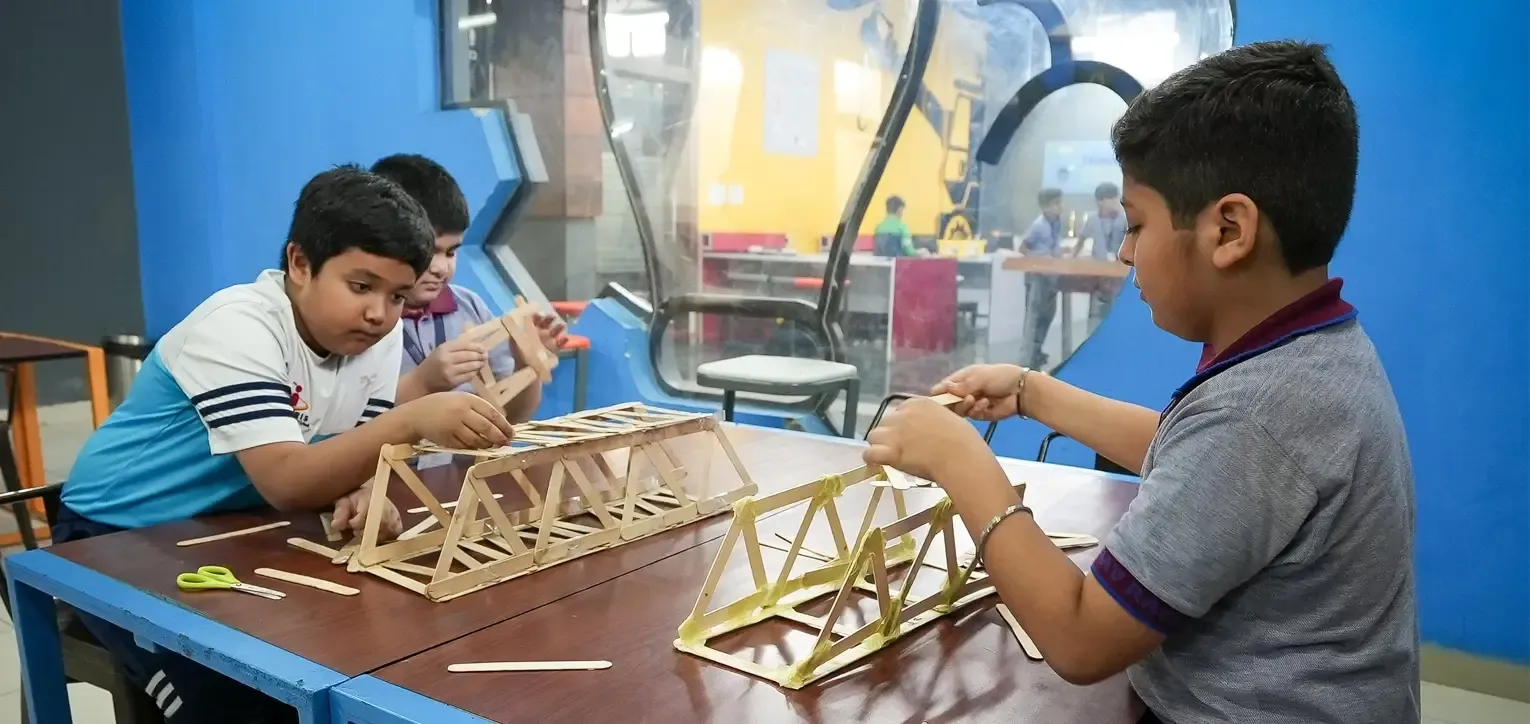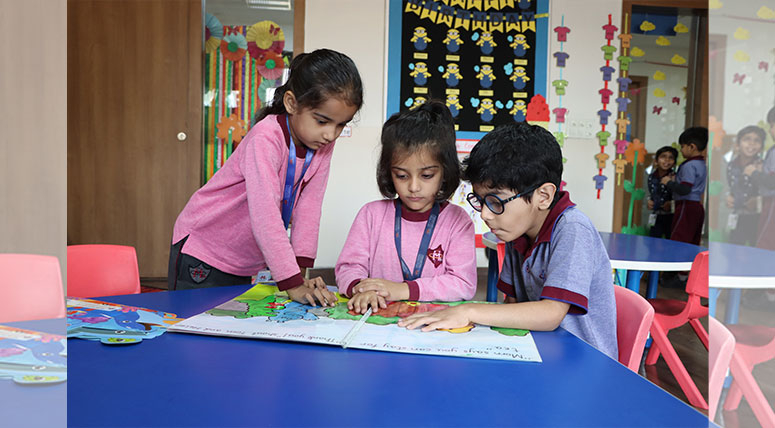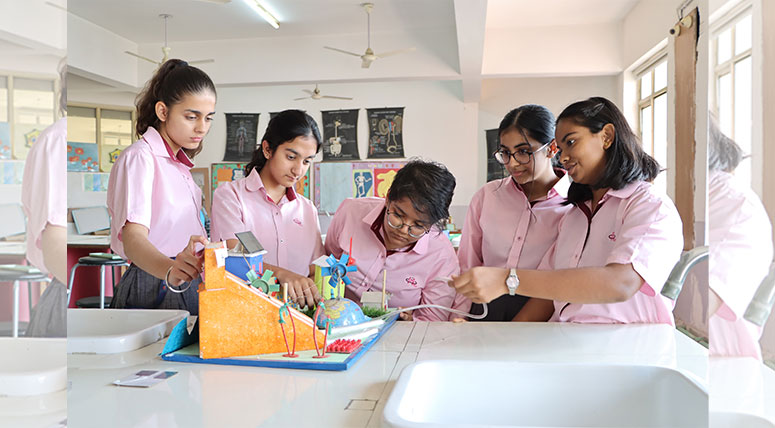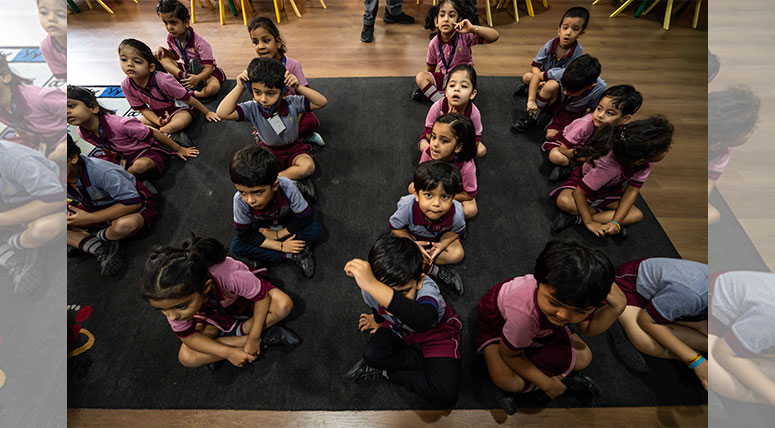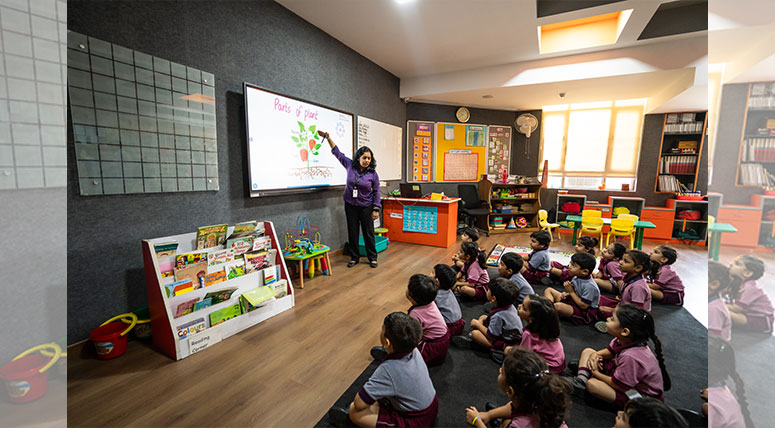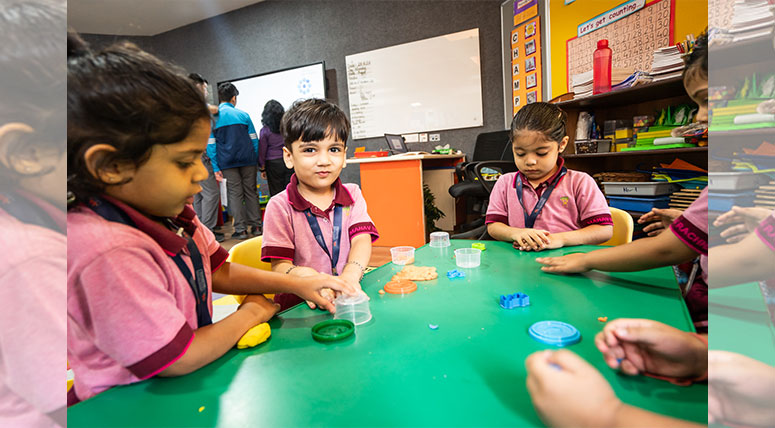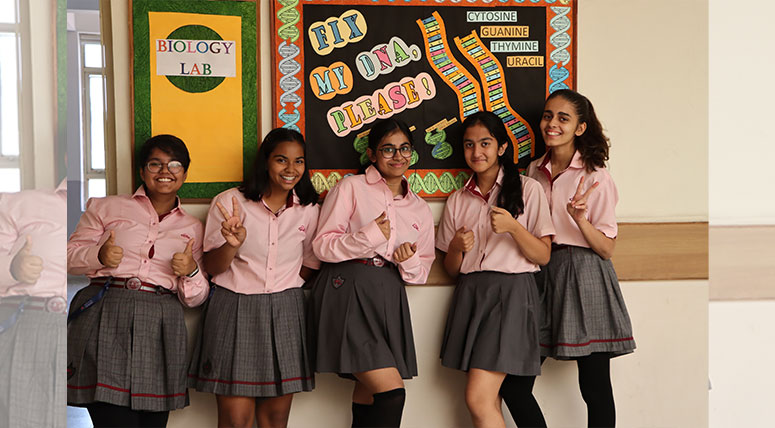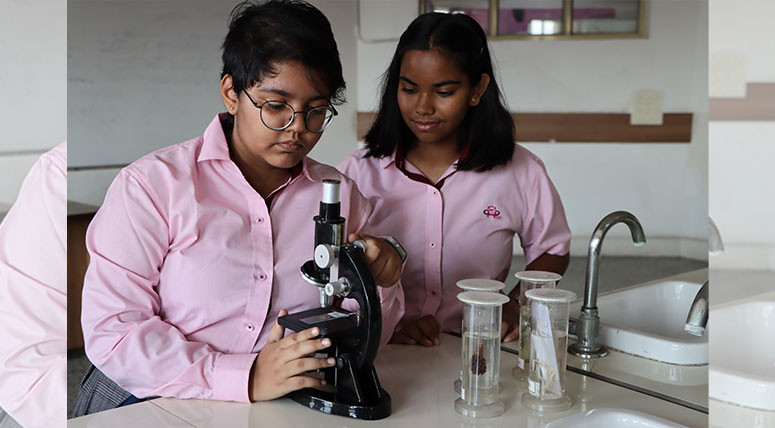THE TRAILING WHISPERS|| MENTORS OPINE || EPISODE 7 The Essence of Nurturing Holistic Development in Children At Manav Rachna International School, Sector 46, Gurugram, Holistic growth is the keystone of personal development, empowering examinees by nurturing comprehensive progress across various aspects of a student’s life, transcending academic achievements, emphasizing the inculcation of important life skills, like, fostering their mental health, emotional intelligence, and a well-rounded personality. Traversing this path, children not only excel in exams but are also able to combat the complexities of the real world with adaptability and resilience. Holistic Growth is mentoring logically the physical, mental, and social well-being of the learners, ensuring the examinees are equipped to communicate effectively, face challenges, and contribute meaningfully to society. Gradually this holistic approach to education delegates students to thrive in diverse aspects of life beyond the examination room. The best International School in Gurugram, MRIS 46, understands the important factor in a child’s life is the formative years of their growth. This phase establishes the groundwork for their continued development and well-being as adults. A word that defines both these aspects of the growth of an individual is popularly known as ‘Holistic Development’. The focus of holistic development is on how different elements of a child’s growth plays a pivotal role especially during the formative years, and according to UNICEF, scientific studies clearly validate that early childhood sets the tone for a person’s entire life. Here at the best CBSE School in Gurugram, we feel, bit by bit, with each passing moment, children’s interactions with their environment shape their whole being and existence. Whatever the child is exposed to in the early years, forms the basis of good or otherwise developments.. There are three key areas of holistic development for an educational set up to work towards: A crucial component of early childhood development is biological development, commonly referred to as physical development, which includes working on and exploring hand-eye coordination, fine and gross motor abilities, and the general wellness of kids. Also parents should find the best school nearby, to keep their wards comfortable. The second significant component goes by the term “cognitive development” that describes a child’s rational abilities, including reasoning, linguistic skills, creativity, critical thinking, and problem solving. Such development is also known as intellectual development and includes the growth of memory, focus, and the capacity to comprehend and convey concepts. Social-emotional development is the third component that educators must work on. It is the child’s ability to recognize and comprehend emotions, work on relations with people, communicate and collaborate with them, which has been categorized as their social-emotional development. SEL (Social and Emotional Learning) is imperative to both teachers and their students. Self-empathy, compassion, managing emotions are few of the social skills that fall into this category. Now one thing that becomes imperative to understand is why is ‘holistic growth’ important in an educational set up and how can Educators foster the same in young children! Understanding holistic development’s role in an educational set up: A child’s holistic development in the early stages of infancy includes their overall development in a number of categories already discussed here, which includes their social-emotional, cognitive, and biological growth. It acknowledges that kids are complicated people, not just learners, and that every stage of their growth affects every other stage. The traditional approach to development, which focuses on isolated areas of development and not holistic growth, is not acceptable at Manav Rachna International School, sector 46, that earnestly ensures all areas and aspects of a child are nurtured. Educators can facilitate children’s holistic development by several approaches. At MRIS 46, the educators revolve around the following five key areas: Creating a conducive space for holistic learning: Educators should provide learning spaces that are interesting and varied, meeting each child’s unique needs and interests. Offering a balance between supervised and unsupervised play, integrating sensory activities, and giving indoor and outdoor learning opportunities are all components of a holistic education. At MRIS 46, the students are given umpteen opportunities to be the decision-makers and take charge of their groups. The teachers take a back seat and allow the children to make their choices and bear the consequences of their decisions, good or bad. Building relationships and connectedness: Children in this best CBSE School have great ties with their caretakers, instructors, and other caregivers feel emotionally secure and enjoy their belongingness. This fosters emotional and social growth and lays the groundwork for constructive relationships and dialogue. Promoting an individualised approach: Given that every child is different, educators should modify their approaches to fit each child’s particular requirements and interests. This makes it possible to provide tailored learning opportunities that promote holistic growth. MRIS 46 has always believed in an exclusive individualised approach towards the students as it always leaves a greater scope for the child to maximise one’s potentials. Promoting integrated learning experiences: Teachers can promote holistic learning by including many facets of a child’s growth into their instruction. For instance, adding storytelling to language-learning exercises helps advance emotional intelligence, empathy, and cognitive and linguistic development. The concept of Area and Perimeter can certainly be taken to the school playground where the children can put their learning to practice, thereby creating a concrete base to their understanding. At Manav Rachna, such practices have been a part of the curriculum since its inception. Emphasising play-based learning: MRIS 46, Gurugram, has the best Playschool for Early Years that is an effective tool for growth on all levels. Teachers ought to make an effort to give students creative, flexible play space that let them explore, try new things, and solve problems. Children acquire integrated cognitive, social, emotional, and physical skills through play. The Future Skills and Sustainability (FS&S) curriculum at Manav Rachna ensures that students find sustainable solutions to the problems thrown at them, thereby turning their learning and work into a playful execution. Such a holistic environment in schools or other similar setups is crucial because it lays a solid basis for the child’s wellness and lifetime learning. By rearing all arenas of a child’s development, educators can help them attain their greatest potential, acquire the fundamental skills required for success in later life, and cultivate a healthy self-image. By using an interdisciplinary lens, an educational institution always gains knowledge about the role inclusive education plays in emancipation and liberation of its students. Additionally, there is a new and different perspective that an institution acquires at how structural injustices affect educational achievements and the society as a whole. By exploring and evaluating all such avenues, the educational institutions discover strategies for tackling these disparities in various settings and guaranteeing that education is accessible to everyone. Taking the child as a whole – rather than just focusing on a particular stage or phase of the child’s development – is crucial to deciphering the intricacy of growth and learning. A solid education is the cornerstone of a person’s overall development. Societies would be better off with better schools. Authored By: Ms. Monika Choudhary, Headmistress-Primary, MRIS-46 Gurugram ALSO READ : JUDGING BY RESULTS? : CELEBRATE PROGRESS ADMISSIONS OPEN: SESSION 2024-25 || EARLY YEARS || GRADE 1-1X & X1 || MANAV RACHNA INTERNATIONAL SCHOOL HOLISTIC GROWTH EMPOWERS EXAMINEES
